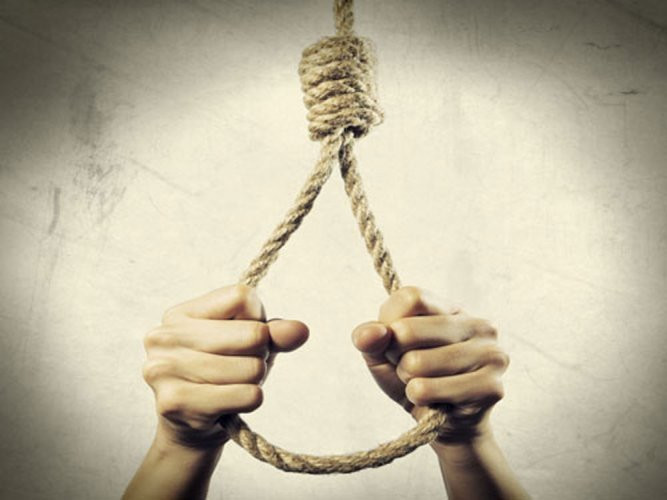
Mental health is a state of well-being in which an individual realises his or her own potential, can cope with the normal stresses of life, can work productively and fruitfully and is able to make a meaningful contribution to their community.
Mental health is a critical component of individual, family, community and national wellbeing and prosperity.
Suicide rates have increased by 60% over the last five decades globally and suicide is now one of the leading causes of death among young people. Africa has the highest rates of suicide among men and suicide is on the rise in Zimbabwe as well.
These statistics reveal the threat suicide is becoming to our health and wellbeing as individuals, families and as a society.
There is a great need to improve awareness and understanding about the factors that cause suicidal behaviour and improve efforts to prevent these unnecessary deaths.
Why does suicide happen?
There are many reasons why someone would resort to suicide.
These factors can be within the affected individual themselves but are also embedded within the community and greater society in which the affected individual lives in.
- Mental health must be a priority at our workplaces
- ‘Art therapy critical in combating mental disorders’
- Be ethical, Potraz tells content creators
- How HR can effectively handle employee depression
Keep Reading
Individual factors: Suicide can result from untreated or poorly treated mental health challenges such as depression and other mood disorders, alcohol and substance use problems and psychotic mental health problems.
Untreated mental health problems will affect an individual’s ability to deal with difficult emotions, solving problems effectively and making sound decisions. Suicide can also result from personal situations that cause stress and increase a sense of hopelessness such as relationship/marital problems, financial problems, chronic physical pain or chronic illness.
Community factors: Suicide can be the result of extreme social isolation and deterioration of social support systems. Stigma that shrouds mental health problems and mental health services can be a barrier to getting appropriate help in time.
Limited access to appropriate mental health care when needed is also a factor that can contribute to suicide. Easy accessibility to means of suicide is also a major risk factor as well as inappropriate media reporting of suicidal behaviour or completed suicides which often leads to ‘copycat’ suicides in the period following publication of stories about a high profile suicide.
How can I help someone who is suicidal?
Listen and be supportive: Our lives are increasingly becoming very busy and we may not always make time to listen and be supportive to family, friends and colleagues who may be struggling.
We need to learn to give each other the precious gift of time. When we ask someone, ‘how are you doing’, we need to be prepared to make time to hear the complex answers that may come when someone is struggling emotionally.
We also need to learn to really listen and not listen with the intent to rapidly give advice or to lightly dismiss the concerns being brought up even if they seem trivial to us. People struggling with suicidal thoughts are often relieved if they can find someone to talk to about this without being harshly judged.
Create or strengthen the individual’s support system: feeling isolated and alone, powerless and hopeless are all emotions that can cause or worsen suicidal thoughts.
Rebuilding the community around someone who is struggling can help relieve the sense of isolation and start to restore a sense of hope.
Help the individual reach out for appropriate help: in many cases suicidal thoughts are a sign of underlying mental health and social challenges for which the individual may need professional help.
Many times when we are struggling, we may need someone to hold our hand and help us reach out for help.
What can we do as a society and as a nation to prevent deaths by suicide?
Suicide is a public health challenge and in many countries suicide rates are used as a marker for mental health care service functionality.
Suicide prevention requires a holistic approach in order to save lives and this can be done through:
Strengthening the mental health system: improving access to quality mental health services is a critical part of suicide prevention. If mental health services are integrated into primary health care services and screening for common mental health problems like depression and substance use problems becomes part of routine care, suicide could be averted in many cases.
There is also an urgent need for a national suicide hotline linked to available mental health services to help address suicidal emergencies.
Address community risk factors for suicide: this includes increasing awareness about mental health challenges and suicide and addressing stigma in the community; decreasing access to means of suicide such as pesticides, unlicensed firearms and access to high rise buildings. Improving media reporting standards on suicidal behaviour and suicides can also help prevent suicides.
A nationwide suicide prevention plan: a concerted effort to recognise and address the risk factors for suicide is needed. Greater investment is needed to improve data collection concerning suicidal attempts and completed suicides as well as research into local factors surrounding suicide to better inform effective home grown interventions.
Suicide can be prevented, what are you doing to help prevent deaths by suicide in your community?
If you think that you or someone that you know may be struggling with suicidal thoughts, please contact your nearest health care provider and get help.
* Dr. Chido Rwafa-Madzvamutse is a consultant psychiatrist. Feedback: Whatsapp: +263714987729










